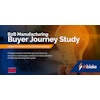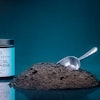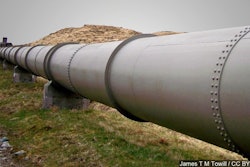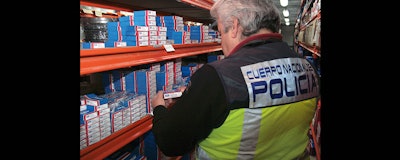
Counterfeit is a growing, global problem. The incidence of counterfeit products has been steadily increasing over the years. Every country and every type of business can be impacted. Counterfeiters can reproduce, transport and sell all types of unauthorized products, from watches to medication to industrial bearings. This situation poses significant problems not only for the manufacturers of those products, but also for the authorized sellers and, perhaps most significantly, the consumers. Though the downside to purchasing a knock-off watch may not be as significant, the result of a fake bearing used in an industrial application could be catastrophic.
Why Is Counterfeit Such A Risky Business?
The overall impact of counterfeiting and piracy on businesses throughout the world, and the United States in particular, is staggering. The International Chamber of Commerce estimates that by 2022 counterfeit and pirated products will negatively impact the global economy by $4.2 trillion. Though it may be hard to imagine, 5.4 million jobs could be put in jeopardy in that time.
Common Misconceptions About Counterfeit Industrial Products
When it comes to counterfeit industrial products, like ball and roller bearings, many key plant personnel are unaware of the risks and assume counterfeits are very rare. Yet, some have estimated that 10 percent of all goods worldwide are counterfeit. Some theorize that only small and high volume industrial products are counterfeited. However, past experience demonstrates that fake products range across the spectrum when it comes to volume. Counterfeit takes a strong hold in the market at times when a product is in short supply. In fact, if a product is in short supply and a non-authorized source has a lot of it available for purchase, a prospective purchaser must be suspicious. Another common fallacy is that counterfeit products are always sold at lower prices. In most cases, counterfeiters typically sell their fake products at market level so as not to raise questions about authenticity. The most common misconception is that it is easy to tell the difference between genuine and fake products, such as bearings or lubrication. The reality is that many counterfeit products look so much like the real thing that only a trained verification expert can tell them apart.
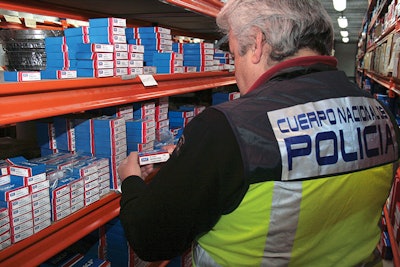 Police raid facility selling counterfeit SKF bearings.
Police raid facility selling counterfeit SKF bearings. How Counterfeiting Works:
In order to protect yourself from counterfeit parts, first you should know how the process works. There are several ways counterfeit products get into the market. For example, new products of unpredictable quality and unknown sources are labelled with false brand markings and put into imitation packaging that appears identical to the real thing. Another method is when products, such as industrial bearings, are remanufactured, then sold as new. Or, very old products are cleaned, polished and supplied without the buyer being informed of their advanced age.
While the untrained eye may not be able to identify which products are real, industrial machinery certainly can tell the difference. Counterfeit products used in industrial equipment can degrade and fail quickly, even catastrophically, causing extensive damage. Counterfeits can also pose safety risks and injury to machine operators or other plant personnel. All of these consequences of buying counterfeit products leads to costly downtime, lost production and safety risks.
What Are Manufacturers Doing To Combat Counterfeiting?
There are steps that manufacturers of industrial parts can take to help keep counterfeit products out of the marketplace. For example, bearing manufacturer SKF is taking very determined steps to combat counterfeit. SKF has a zero tolerance approach to counterfeiting of any kind and works hard to keep counterfeits out of the marketplace. The company is available and equipped at any time to assist local law enforcement authorities in their efforts against this unlawful activity. SKF has found that successful raids resulting in closing these illegal businesses does great harm to the counterfeit trade. As described by Ted Barry, VP and general counsel at SKF USA Inc., “Our goal at SKF is to see counterfeit activity dry up completely.”
In order to help eliminate the illegal trade in counterfeit products, it is important to increase awareness to make sure the sellers and buyers of industrial parts know the best sources for genuine products. Those involved in industry must not make the mistake of thinking that counterfeiters are selling products in a back alley out of their trench coat pockets. The reality is that many counterfeiters operate out of storefront facilities appearing to be completely legitimate and maintain sophisticated websites and internet-based sales platforms that would make any tech guru jealous. These fake industrial distributorships house entire inventories of fraudulent products like bearings, seals and lubrication.
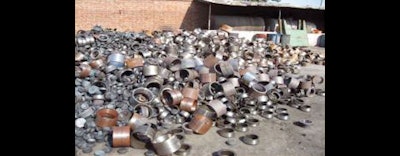 Successful raids do great harm to the counterfeit trade.
Successful raids do great harm to the counterfeit trade. Where In The World?
The campaigns of proactive manufacturers, like SKF, have made significant headway in leading to US Customs seizures of counterfeit products. The market value of these seized products would be millions and millions of dollars. China is top country of origin for these counterfeit products. However, it is important to note that illegal counterfeit products are coming into the country from ports in all corners of the United States. Customs has seized products from Anchorage to New York to Miami to Los Angeles. Counterfeiters are using every means of transport available including sea, air, land, and courier service. It is a daunting job for Customs, working to stop them at the border.
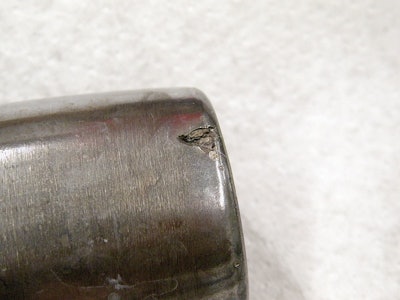 Counterfeit bearing used for less than 40 hours.
Counterfeit bearing used for less than 40 hours. Make Sure You And Your Plant Are Protected
Industrial plants should be aware of black list suppliers and be sure they turn to authorized supply channels. If your plant has experienced procurement issues or problems with counterfeit products coming into your facilities, be sure to partner with an industrial parts supplier you can trust and buy only from authorized distributors for all of your products.
Remember the following important guidelines if you suspect counterfeit:
- Don’t try to identify genuine or fake products on your own
- Don’t take legal action on your own against those involved in illegal branding and sales
- Do report suspected counterfeit products or outlets selling these suspected products to the manufacturer or distributor
- Do source your products through an authorized distributor like to safeguard authenticity
- Do take photos and gather information of suspected counterfeit products to share with the manufacturers and distributors, including the packaging, product and product designations
Jim Williams is Motion Industries' vice president of purchasing, a position held since 2010. SKF is a global supplier of bearings, seals, mechatronics, lubrication systems and services which include technical support, maintenance and reliability services, engineering consulting and training. For more information on this topic, visit www.motionIndustries.com and view the MiHow2-SKF video focusing on counterfeit bearings.



